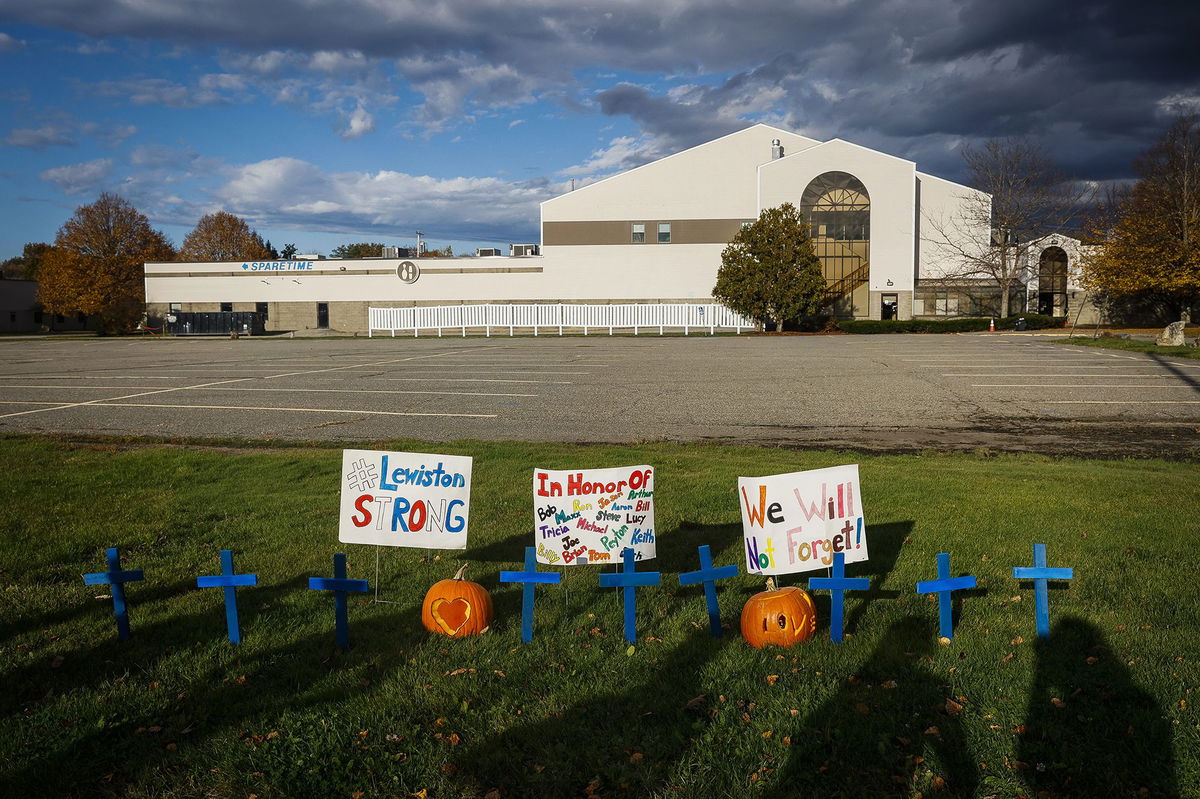‘Several opportunities’ to prevent Maine mass shooting were missed, commission finds

Originally Published: 20 AUG 24 11:24 ET
Updated: 20 AUG 24 11:49 ET
By Dakin Andone and Chris Boyette, CNN
(CNN) — An independent commission tasked with reviewing the shooting rampage in Lewiston, Maine, last October found the local sheriff’s office and leaders of the gunman’s Army Reserve Unit failed to take actions that might have prevented the shooting.
While Robert Card was “solely responsible” for the shootings – which left 18 people dead and 13 others wounded across two scenes – the commission’s final report found the Sagadahoc County Sheriff’s Office had probable cause to use Maine’s yellow flag law to begin the process of securing the gunman’s firearms in September 2023, the month prior to the shooting, but did not.
Additionally, the commission determined the leaders of Card’s Army Reserve Unit ignored recommendations by Card’s mental health providers to ensure weapons were removed from his home. The commanding officers also did not share with the sheriff’s office the totality of information about Card’s troubling behavior, which might have prompted them to change their approach, the report says.
“Although he might still have committed a mass shooting even if someone had managed to remove Card’s firearms before October 25, 2023,” the report says, “there were several opportunities that, if taken, might have changed the course of events.”
CNN has reached out to the Sagadahoc County Sheriff’s Office for comment.
The independent commission’s report comes on the heels of a separate review by the US Army released in July that said a series of failures and breakdowns in communication among Card’s military chain of command, civilian law enforcement and medical providers preceded the shooting. While noting Card’s commanders had “limited jurisdiction” over him – reservists are on duty an average of 40 days a year – three people in the gunman’s chain of command were punished, officials said.
Authorities say Card, using an assault rifle, went on a shooting rampage at a bowling alley and a bar on October 25, 2023, prompting a manhunt that ended two days later when he was found dead of a self-inflicted gunshot wound.
In the aftermath, Gov. Janet Mills and Attorney General Aaron Frey announced the independent commission would review the shooting, including events that led up to it. Chief among them was a monthslong series of incidents that illustrated the reservist’s declining mental health, including the fact that his family had contacted authorities to voice concerns over his well-being and his access to firearms.
The revelations raised questions about why more wasn’t done to prevent the shootings.
The commission’s findings released Tuesday echo an interim report released in March, which similarly said the sheriff’s office failed to invoke the state’s yellow flag law, which could have been used to disarm Card.
The law – a more relaxed version of the more widely known red flag laws in other states – was designed specifically for individuals like Card, who exhibited signs of a mental health crisis and demonstrated himself to be a threat, gun policy experts previously told CNN. But authorities instead relied on Card’s family to keep his guns from him after they tried unsuccessfully to speak with him, the interim report found.
A month prior to the shooting, law enforcement and the US Army were aware Card had been hospitalized for two weeks for a serious mental illness, that he had access to at least ten guns, had assaulted a friend and had threatened a Saco, Maine, military facility, per the interim report.
This is a developing story and will be updated.
The-CNN-Wire
™ & © 2024 Cable News Network, Inc., a Warner Bros. Discovery Company. All rights reserved.
